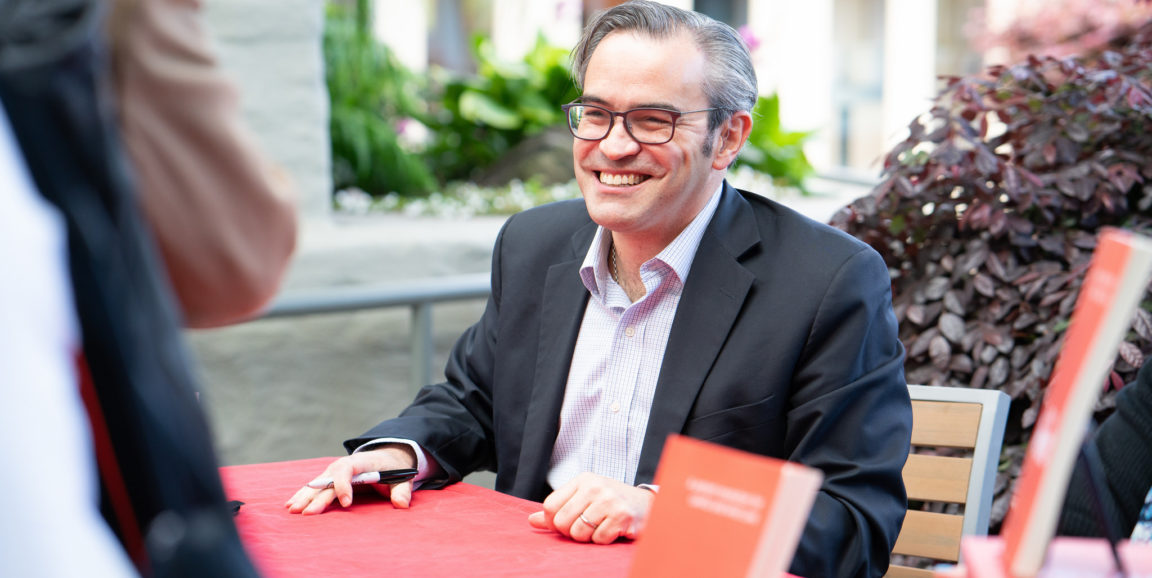This morning, as the lights went up on opening day of Stanford Medicine X | ED 2018, Larry Chu, MD, the conference's executive director, looked out at the audience full of familiar faces and welcomed the crowd back home. Home had moved slightly, just off campus to the Quadrus Conference Center, a return to where the first Med X | ED was held.
"We started here in 2015 with the idea of bringing patients into medical education," said Chu, who is also a professor of anesthesiology, perioperative and pain medicine at Stanford. Since then, ePatients, medical students, physicians and educators attending the event have learned and achieved a lot, he said.
The next challenge, Chu explained, is to "take what you learn here and bring it home to your community. Put what you've learned into practice."
The opening keynote speaker Victor Montori, MD, professor of medicine at Mayo Clinic and author of the new book, "Why We Revolt," echoed Chu's call to action and said there is a need for "a patient revolt."
"We have industrial health care," Montori said. "Care has gone from being a verb, like love, to a product we deliver. This is the result," he said, showing an image of a patient sitting alone at a table with an array of prescription pill bottles in front of her.
She has a ton of "care," Montori said pointing to the pill bottles, "and yet..." Montori pointed to her face, clouded with confusion and despair.
In this type of industrial health care, "patients are almost a blur," Montori explained. Providers check boxes on a computer screen, document for billing and do many things that have nothing to do with the patient. "For the clinician, there's a loss of meaning that often results in a feeling of disconnection and burnout."
Patients are overwhelmed too, Montori said. "We ask them to come prepared for their consultation, bring questions, take notes during the visit, communicate via online portal, keep family and others informed, advocate for themselves and more, and we are asking this from sick people," Montori said. "When they cannot keep up, we label them as 'noncompliant.'"
Contrast this, Montori said, with a format of health care he calls "careful care." Here the patient and provider have an unhurried conversation and together arrive at a sensible course of action.
"When I mention that care should be based on love, I often see a bit of discomfort from the audience," Montori said. "Paradoxically, I don't see this discomfort when I mention the word 'profit.' Profit is the dirty word, not love."
"We need kind care," Montori said returning to the example of the patient sitting in front of the pill bottles. This particular patient, he told the audience, struggled to stick to her diet because it excluded the Peruvian foods she loved. Care is realizing this patient misses the food of her home country. When her health care team realized this they created new recipes that adhered to her diet but still had Peruvian flavor. Now she could enjoy food without having to cheat. "No one can resist Peruvian food," Montori (who was born in Peru) said as the audience erupted into laughter.
Montori closed his talk with a slide of two marble hands, his favorite sculpture by Rodin. "If you look carefully, you'll see these hands are not from the same person. It's two hands from two different people coming together because all of the material between them was removed. It's a beautiful metaphor for what we are aiming to achieve in health care," Montori said.
Photo of Victor Montori signing copies of his book by Justin Lai / Stanford Medicine X | ED




